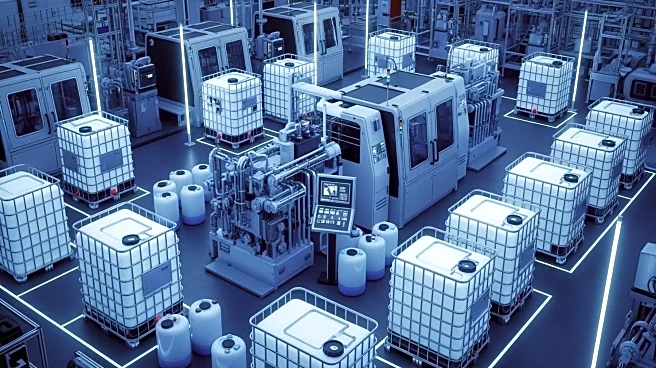What's Happening?
Dr. Cassandra Higham, Industrial Director at Castrol, has highlighted the benefits of intelligent fluid management in manufacturing. Through real-time monitoring of lubricants and coolants, manufacturers
can enhance reliability, reduce costs, and advance towards Industry 4.0. Traditional manual checks often lead to waste and unplanned downtime, but intelligent monitoring allows for predictive maintenance, optimizing fluid use and preventing failures. This approach not only reduces waste but also extends tool life and improves product quality, particularly in sectors like electric vehicles and aerospace. The adoption of smart fluid management systems can lead to significant savings and operational improvements.
Why It's Important?
The implementation of intelligent fluid management systems is crucial for manufacturers aiming to reduce operational costs and improve efficiency. By transitioning from reactive to predictive maintenance, companies can minimize waste and enhance productivity. This shift is particularly beneficial in high-precision industries where fluid conditions directly impact product quality and equipment longevity. The move towards data-driven lubrication and coolant management represents a practical entry point into Industry 4.0, offering manufacturers a scalable solution to improve competitiveness and resilience in a challenging economic environment.
What's Next?
Manufacturers are encouraged to progressively adopt intelligent fluid management systems, starting with simple alert systems and gradually integrating more comprehensive solutions. This step-by-step approach allows companies to build confidence and capture incremental benefits without the need for a complete overhaul. As more manufacturers embrace these technologies, the industry could see widespread improvements in operational efficiency and cost savings, positioning early adopters as leaders in reliability-driven manufacturing.
Beyond the Headlines
The adoption of intelligent fluid management systems not only offers immediate operational benefits but also contributes to broader digital transformation efforts within the manufacturing sector. By leveraging real-time data and automation, companies can enhance their strategic capabilities, optimize resource use, and build resilience into their supply chains. This transformation is essential for maintaining competitiveness in a global market where margins are tight and customer expectations are high.











